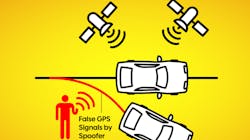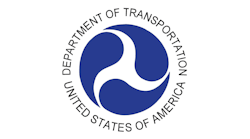Illinois Tech’s CARNATIONS named Tier 1 UTC
The Center for Assured and Resilient Navigation in Advanced Transportation Systems (CARNATIONS) at Illinois Institute of Technology (Illinois Tech) was named a new Tier 1 University Transportation Center (UTC) by the United States Department of Transportation (USDOT). As a Tier 1 UTC, CARNATIONS will receive a $10 million grant from USDOT for improving transportation navigation systems by making them more resilient to cyber attacks such as spoofing and jamming.
Led by Professor of Mechanical and Aerospace Engineering Boris Pervan, CARNATIONS brings together a consortium of universities to perform transformative research in the area of resilient transportation systems, facilitate technology transfer to public agencies and industry and advance workforce and educational development.
Interference such as jamming and spoofing that targets critical infrastructure has the potential to cause widespread delays and cascading failures across multiple modes of transportation, including ships, trains, trucks, and cars.
A major aircraft manufacturer reported more than 10,000 global navigation satellite system (GNSS) interference events in 2021 alone and repeated spoofing has impacted a range of military operations internationally.
“Whether it’s innovating ways to identify cybersecurity threats to our transportation systems, or removing those potential risks, I’m confident the bright minds at Illinois Institute of Technology and Chicago State University will be working on infrastructure breakthroughs to help protect working families across America, all while creating jobs for the diverse transportation and tech leaders of tomorrow,” said Sen. Tammy Duckworth (D-IL). “I’m proud to have advocated for this project and look forward to this federal investment helping prioritize the advanced transportation that will drive our nation’s future.”
With a broad coalition of university collaborators and industry advisers, Pervan and his team plan to approach the problem from several angles, including developing sophisticated algorithms that can tell the difference between authentic or spoofed GPS signals and improving GPS receivers by combining them with other types of sensors that are immune to jamming and spoofing.
Addressing these problems is essential to intelligent transportation systems that rely on GPS not just for navigation, but for control, such as in self-driving cars, which Pervan has experience researching.
CARNATIONS will be looking to the future at the possibility of a fully connected system, where self-driving cars share information with each other and with smart infrastructure such as traffic signals.
“Spoofing vehicles can be very dangerous,” Pervan said. “If you spoof one car, and that information gets passed on to others, it’s infecting the whole system. On the other hand, the information from the other vehicles could be of some use to tell you that you’re being spoofed, so right now we have no idea how that trade-off will play out.”
CARNATIONS will create workforce development programs, develop certificates and prioritize educating the next group of transportation professionals.
In addition to Pervan, Illinois Tech Professor of Mechanical and Aerospace Engineering Matthew Spenko and Research Associate Professor Samer Khanafseh will conduct research through CARNATIONS.
Chicago State University, Stanford University, University of California Riverside and Virginia Polytechnic Institute and State University are also CARNATIONS consortium members.
“Our nation’s infrastructure increasingly relies on connected and automated technologies, with significant potential cybersecurity risks,” said Sen. Dick Durbin (D-IL). “Illinois Institute of Technology will help develop innovative solutions to protect our nation’s transportation infrastructure from cybersecurity risks. This partnership with Chicago State University will train the next generation of engineers on innovative technology to identify, mitigate and remove cybersecurity risks from our transportation infrastructure.”


